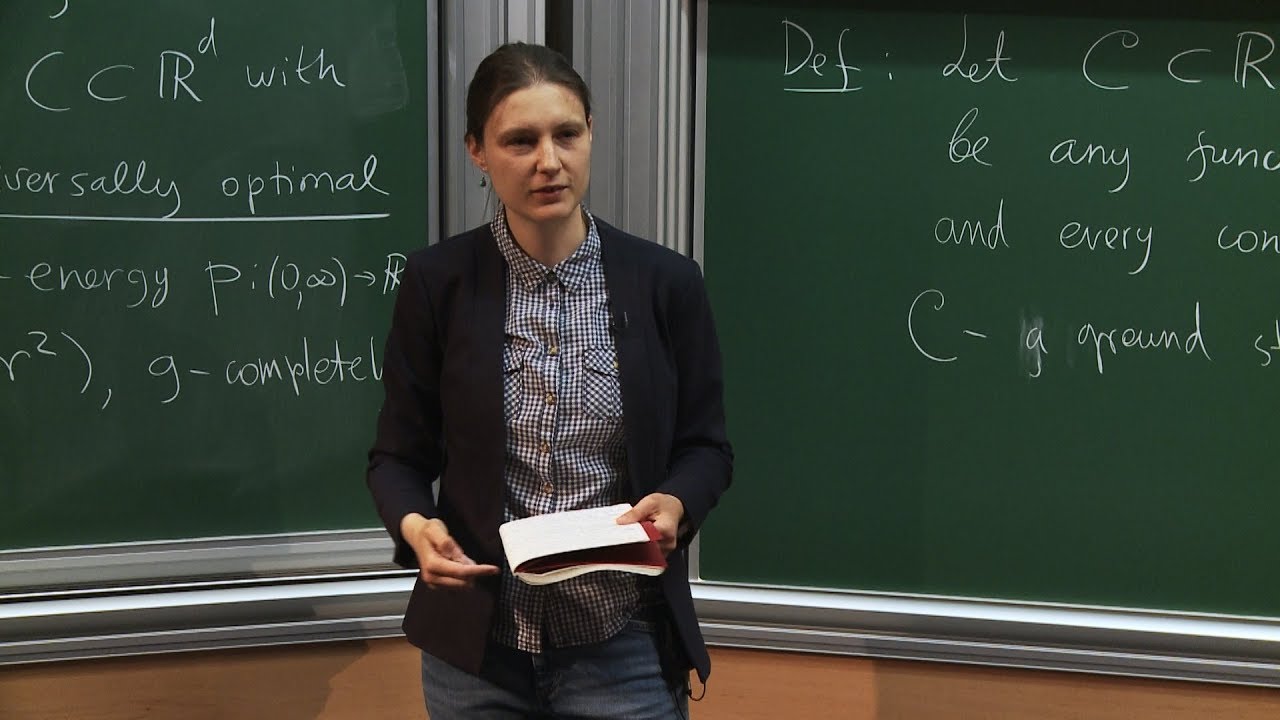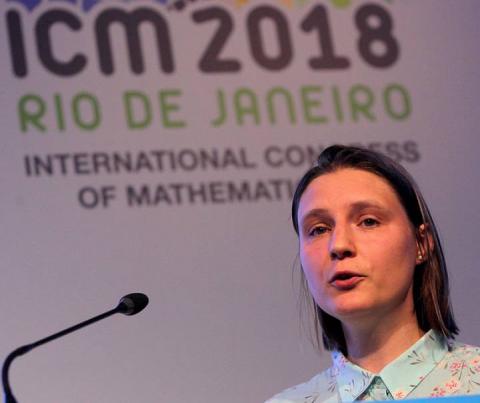A little over a year ago, I imagined and dreamed of being in St. Petersburg (Russia) today. And not only because I do not know the wonderful Russian city where Leonhard Euler, the father of Graph Theory (possibly my favourite area of mathematics) lived and is buried, but also because, just over a year ago, I had received the invitation that every mathematician dreams of: to give a paper at the International Congress of Mathematics, the ICM, which had been scheduled to be held in this city in July 2022 since 2018. But, for reasons you can imagine, it is not being held there, and it has nothing to do with a coronavirus but with something for which world science has not and will not find vaccines.
ICM 2022 will be held almost entirely in a virtual format. Earlier today, the winners of the Fields Medals were announced. Together with the Abel Prize, these awards are the most important mathematics prizes in the world. You may not be familiar with the name of any mathematician who has won the Nobel Prize in Mathematics because there is no such prize. However, there are mathematicians who have won a Nobel Prize. Like our compatriot José Echegaray (engineer, playwright, politician and mathematician), who was awarded the Nobel Prize for Literature in 1904. The first Spanish Nobel, by the way.
The Fields Medals are awarded every four years and have an important age restriction: they are only awarded to people no older than 40
The Fields Medals are international medals for outstanding discoveries in mathematics and are named after the Canadian mathematician John Charles Fields. They are awarded every four years and have an important age restriction: they are only awarded to people no older than 40. It is a precious, gold-plated medal on which, next to an image of Archimedes, one can read "Transire suum pectus mundoque potiri" ("Go beyond oneself and master the world").
Second mathematician to win the award
It may sound exaggerated to some people to say that mathematics can dominate the world, but it is not exaggerated. Far from it. You only have to look around you. If we stop and think about who dominates the world we will realise that, regardless of the politicians of the moment (who come and go), the ones who really control this planet are the IMF, the ECB, Google, Facebook, Amazon, etc... And they do it with mathematics. They have 'conquered' and dominate the Earth with algorithms. They have not needed bombs. Not even ballot boxes. Just mathematics. Mathematician Edward Frenkel has a short but eloquent phrase to explain it: "There is a small elite that has the power. And they have it because they know mathematics and you don't".
Of the 60 medals in its 19 editions, from 1936 to yesterday, only one woman had been awarded the medal
But, returning to the Fields Medals, of the 60 medals awarded in its 19 editions, from 1936 (more than one is awarded each year) until yesterday, only one woman had been awarded. That was in 2014 and it went to the Iranian Maryam Mirzakhani, one of the best mathematical minds of the 21st century. She died in 2017 of cancer. Today the jury has recognised the work of Ukrainian mathematician Maryna Viazovska (Kiev, Ukraine; 1984), making her the second woman in history to receive this prestigious award.
Already in 2018, a very important part of the world mathematical community had been waiting to hear Viazovska's name for this award for the strength, significance and beauty of her work on sphere packing problems. But it was not to be. It pained us in 2018 that that name did not appear on any of the four Fields Medals awarded that year, but this year we are all in congratulation that she has made it. Maryna Viazovska is, in addition to a privileged and brilliant mathematical mind, Ukrainian.
Why are women not among the winners of the best prizes?
The absence of women from the list of Fields Medals is striking, because although women have been banned from access to higher education in the past, since the last third of the 20th century and so far this century, there have been, are and surely will be many women under the age of 40 who have deserved, deserve and surely will deserve to be recognised with this distinction. Why are women not among the winners of the best prizes? There are already women in all areas of knowledge (in some of them still few), why are their names not on the lists of prize-winners? It is all very strange.
Already in 2018, we were waiting to hear Viazovska's name for this award for the strength, significance and beauty of her work on sphere packing problems
In the list of winners of the other great prize in mathematics, the Abel Prize, only one other woman's name appears: Karen Uhlenbeck (2019). One woman and 24 men on the list.
I answer, in case it comes up, the question that, if what women are interested in is doing mathematics to dominate or save the world, why do they want the prizes?
Because they deserve them. I could add "full stop". But what's more, the prizes serve to make them visible and to show them as points of reference. To tell girls that, if they want to, they can be mathematicians. So that they have women to inspire them. It is not necessary to have the talent of Mirzakhani, Viazovska or Uhlenbeck to improve and help the world by doing mathematics.
As my friend Enrique F. Borja says, "science no longer needs giants, but mountains of dwarfs". Dwarfs and dwarves who make this a better world. Dwarves and dwarfs who know, analyse and squeeze all the possibilities that mathematics offers us because, and this is so, mathematics is the most powerful tool we have to save the world. Think about what Artificial Intelligence is achieving, for example, in the diagnosis of diseases or the design of medicines. And we need that, we need a mountain of dwarves and dwarfs, of all colours, with all languages, with all accents, with all gender identities, with all religious beliefs. Because I am not an expert in evolution, but I believe that by now we are all aware of the deterioration to which inbreeding is leading us.
The awards serve to make visible and to show references. To tell girls that, if they want to, they can be mathematicians. So that they have women to inspire them
By the way, if you look for information on why there is no Nobel Prize in Mathematics, you may come across the hoax that it was because a mathematician had inappropriate relations with Alfred Nobel's wife. Alfred Nobel never married. What seems more likely is that Nobel did not choose this area of knowledge because he wanted to reward those areas of science that had a practical and real application in human life. And mathematics, according to him, didn't. Is it to Google him in the photo or not to Google him?




